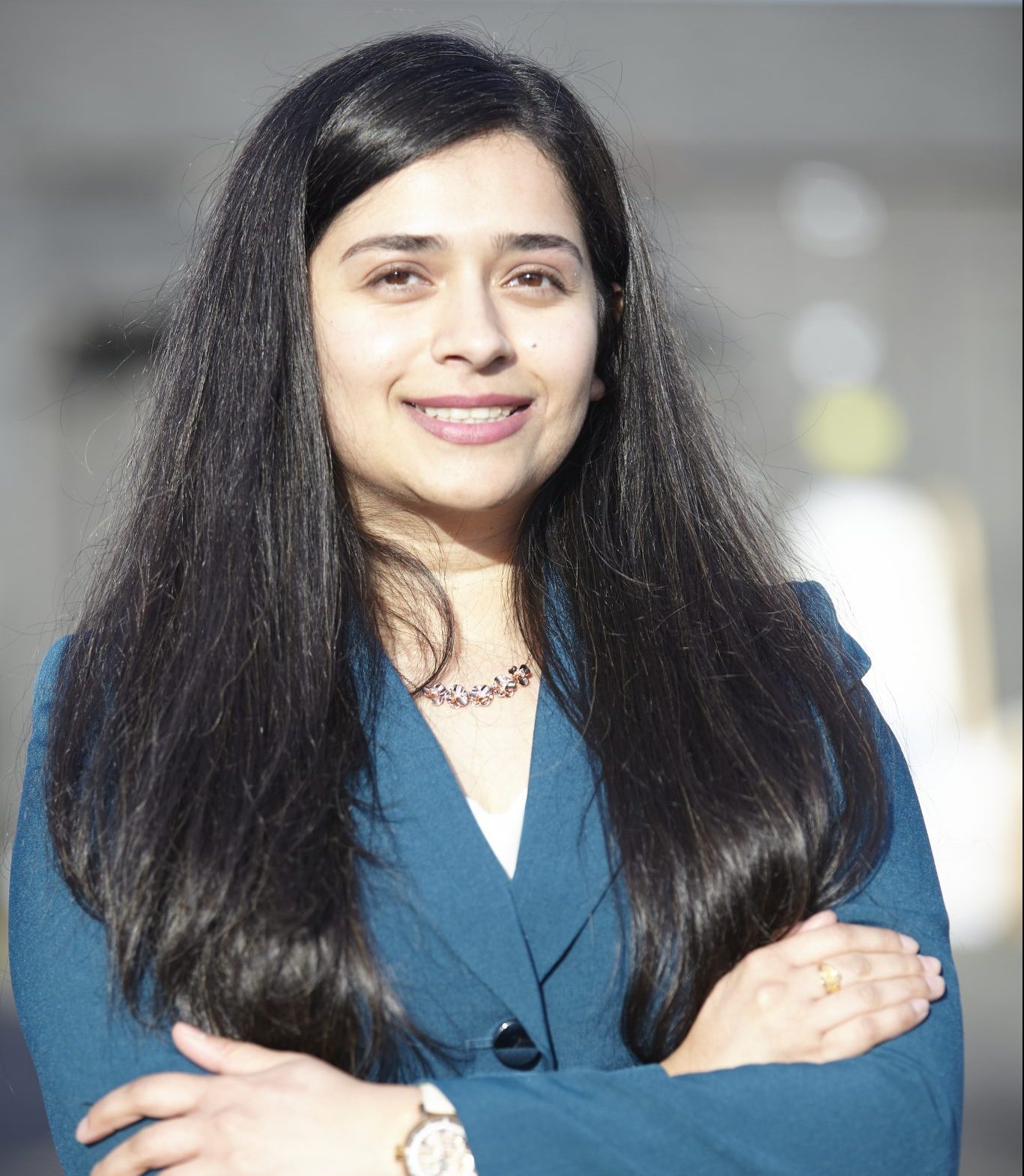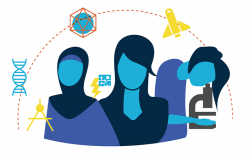Meet Manshi Naik, Senior Systems Engineer and Notable Woman in STEM

Can you explain to us what you do?
I work at Blue Origin, Jeff Bezos’ rocket company, as a Senior Systems engineer. This role involves mapping out the processing that engineers use in order to take requirements into a product from concept, through to building it, and maturing it into final design, and then into a physical product that someone builds. My role is in the design development — building processes for engineers to execute and giving them the methodology to do so. I also make sure all the tools and systems they use match up to that process and workflow. These are the fundamentals of systems engineering.
What was your education and/or career path? How did you get where you are now?
Most people at Blue Origin have lived and breathed aviation and space since they were toddlers, but I had another path. I graduated from Purdue University in BioEngineering — an unrelated field. I started off wanting to be a doctor, but switched to engineering [when I realized] problem-solving was more of my way — instead of memorizing lots of information.
[As a biomedical engineer] I started my career doing product development for medical devices and was in that field for about 8 years. My attraction to aerospace started while my brother was working on the SLS rocket at the NASA facility in New Orleans. I went on a tour and was awestruck. I began wondering about how I could take my medical device systems engineering experience and fit it to aerospace.
So that’s how I got my foot in the door at Blue Origin and have been there ever since. I just finished my MBA this summer because I’m looking to expand from my technical work into a management role that is more involved in developing and guiding people.
What/who were some of your most important influences that guided you to STEM?
My family was the most important influence. We immigrated to the US when I was 5 years old. Both my parents are highly educated and were successful in India. My mom has a master’s degree in analytical chemistry and my father was one of the top mechanical engineers in our city—so both were extremely accomplished. My parents valued education and in particular STEM; my brother and I both ended up in engineering. He went to Purdue first, and I followed in his footsteps.
What is your favorite part of your job?
Problem-solving is my favorite part. I like to take an issue someone is experiencing, break it into components, and find a systemic way to solve that problem. These problems can sometimes take months to solve, or sometimes just a day, but I love it either way.
What do you consider your biggest achievement in STEM?
At one of my previous companies, I was involved in product risk management. This means I’d look for technical flaws—either from user-error, or a manufacturing or design process error—and guide changes to the design to mitigate the risk. So my job was setting up that entire process from start to finish, and training and motivating people to be more passionate about [risk management].
It was an interesting situation: I was assigned to a site that was recently acquired by the company that hired me, so [in the new company structure] I was seen as a “legacy” employee, which carried a lot of negative perception about being overly jealous in application of processes. I had to overcome that stigma and work with my new colleagues so they understood what product risk is, how to overcome it, and improve product safety. I consider overcoming those circumstances to help others see the bigger picture and help that company create safer products, as one of my biggest achievements in STEM.

Are there any stereotypes about women in STEM you’d like to personally dispel?
Yes, but more about engineers in general than about females specifically! One of the biggest stereotypes is that engineers are like these “Dexter’s Lab” type of geniuses who are awkward and have no social skills. TV propagates this myth, but it’s not factual at all. Being an engineer, I need to have good social and negotiation skills to interact with stakeholders and customers. I must have good communication skills to talk to people, understand what they are saying and explain things so it makes sense to them. Sometimes, this means I maybe need to be more introspective about my communication style and adjust it, so what I’m saying is understood by that particular group.
So I want to dispel this myth. We engineers have to have great social skills. Sometimes, we aren’t even nerdy!
What unique qualities do you think girls and women bring to STEM?
Having perspectives from both sexes, and diversity in general, is critical when developing technologies. Let me give an example: I am left-handed. If there are no left-handed people involved in designing and testing products, everything would be mostly geared to right-handed people because left-handed requirements would never be understood. There would be no left-handed scissors, or products suitable for both dominant hands. In medical devices, I used to design and conduct human factors studies on products and it was very obvious how diversity plays into how a user reads instructions, executes tasks, and interfaces with the technology, and how all of that contributes directly to patient outcomes when using the device.
This is also apparent when you think about how technology has evolved over time—some things were designed for women in mind like kitchen appliances, versus things traditionally geared toward men, such as cars. That mentality has changed overtime and there are women who drive and men who cook. Gaining diversity in perspectives allows for product requirements to be defined and validated for a diverse group of users—regardless of gender, race, or as in my example, dominant hand. It’s important to know and meet the needs of all users. Having diversity contributes to technological advancement by challenging long-standing ideas, notions, and perspectives.
How do you see science, technology, engineering, and/or math working together in your current job?
I work at the nexus of all these things. As a Systems Engineer I take requirements from the science folks: the propulsion engineers and all of the people doing product design. Then, I’m taking direction from the management team, and taking all the capabilities of the tools and systems that come from the technology team. I combine all these requirements and spit out a process that will work. And I have to get buy-in from a lot of different stakeholders. From an Engineering standpoint, science, technology, and math go hand in hand – you can’t have one without the others.
What would you like to say to young women thinking about beginning a career in STEM?
There is likely something in the STEM field for any sort of passion you may have. Do what you are passionate or curious about. Don’t do something (or conversely, don’t avoid something) because of perceptions or myths you’ve heard. If you want a career in STEM, do it because you want to learn about it. If you are passionate and curious, that will make you successful and happy, and you’ll feel fulfilled.
What do you think is unique about Washington and the STEM careers in our state?
I’ve lived in Indiana for college, Chicago and North Carolina for my first jobs. And during childhood I lived in the Deep South – Georgia and Alabama. I’ve lived in lots of places, but I don’t think any state is as teeming with opportunities in engineering and technology as Washington. It has just about every kind of tech and engineering industry available: from medical devices to aerospace to social media companies, and more. There is just no other place like Washington that is such a hub for STEM careers.
Can you share a fun fact about yourself (something that couldn’t be found via a Google search)?
I’m an avid hobby-switcher—I jump from thing to thing. I’ve had phases in tae kwon do, swimming, squash, running—I just like to try something new, get really obsessed for a while. Who knows? Maybe I’ll find something I can be an Olympic Athlete in one day! For now, I have a new puppy and I’m busy training her. She’s a mini Goldendoodle named Daisy.